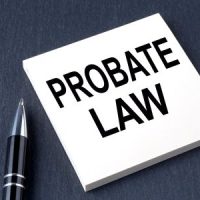Can a Florida Court Order Discovery in a Foreign Probate Case?

Probate litigation can arise when one group of heirs or family members believe that the executor–often a family member themselves–is hiding or concealing assets. Given Florida’s position as a hub of international commerce, there may also be cases where people from outside the United States allege such assets are being illegally hidden in Florida. So what legal remedies exist for such scenarios?
Argentine Heirs Seek Proof of Estate “Fraud” from American Banks
A federal judge in Miami recently addressed this very question. This case arose from the administration of an estate in Argentina. Three of the decedent’s heirs filed an application in United States District Court seeking discovery related to the Argentine probate. Specifically, the heirs maintain that they “received less than their fair share of the estate” because the administrators of the estate–who were also heirs of the decedent–fraudulently concealed assets in the United States.
Essentially, the heirs want to question a number of United States-based banks and financial institutions under oath. The heirs believe the decedent owned accounts at these institutions. More to the point, the estate administrators knew of these accounts and failed to include them as part of the decedent’s Argentine estate.
United States District Judge Beth Bloom granted the application for discovery. Bloom explained that under federal law, a district court can grant a “request for judicial assistance” if four conditions are met: (1) the request is made by a foreign or international tribunal, or, as in this case, any interested person in a foreign or international proceeding; (2) the request seeks evidence in the form of testimony or a document; (3) the evidence must be for use in a foreign or international proceeding; and (4) the subject of the discovery request is within the jurisdiction of the district court.
Once these conditions are met, however, the court must then consider four additional factors when exercising discretion to grant or deny a discovery request: (1) whether the subject of the discovery request is a participant in the foreign proceeding; (2) the character of the proceeding itself; (3) whether the request conceals an attempt to circumvent the foreign court’s discovery restrictions; and (4) whether the discovery request itself is unduly burdensome or intrusive.
Here, Judge Bloom said all four factors weighed in favor of granting the heirs’ application for discovery. Notably, the American banks are not participants in the Argentine probate proceeding, meaning there is no other way for the heirs to obtain discovery. Nor was there any indication that the heirs were trying to circumvent any Argentine discovery restrictions, or that the Argentine probate court would reject the evidence obtained through the U.S. discovery process.
Contact a Pompano Beach Estate Litigation Attorney Today
While probate is a matter of state law here in the United States, probate disputes can and often will cross state and national boundaries. That is why you need to work with a skilled Pompano Beach estate and trust litigation attorney. Contact the offices of Mark R. Manceri, P.A., today to schedule a consultation.
Source:
scholar.google.com/scholar_case?case=292657220348050905
